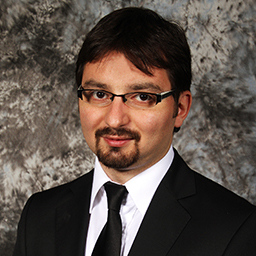

Three researchers from the Naveen Jindal School of Management at The University of Texas at Dallas have figured out a way to reduce sepsis-related patient mortality — and have won a best paper award for doing so.
Dr. Özalp Özer, George and Fonsa Brody Professor in Management and a professor in the Operations Management Area, Dr. Mehmet Ayvaci, an associate professor in the Information Systems Area, and Zahra Mobini, a PhD candidate, took first place in the 2021 College of Healthcare Operations Management’s Best Paper Competition. Their paper, “To Catch A Killer: A Data-Driven Personalized and Compliance-Aware Sepsis Alert System,” prevailed among 54 submissions. CHOM is the healthcare subsidiary of the Production and Operations Management Society, an international professional organization for academicians and practitioners in the production, operations management and supply chain fields.
Using Data to Develop Patient-Specific Alerts
According to the paper, sepsis — a potentially life-threatening blood infection — affects 1.5 million patients and contributes to as many as half of all hospital deaths in U.S. every year. The paper develops a data-driven algorithm to detect sepsis early by creating patient-specific alerts while considering caregivers’ compliance behavior. The team proposed these ideas to leaders of the hospital system with whom they collaborated to improve the existing sepsis-alert system.
The proposed alert algorithm uses personalized data that accounts for heterogeneity among patients (differences can include age, physiological measurements, the concurrent presence of two or more conditions or diseases). The algorithm also accounts for caregivers’ differing compliance behavior across different hospital units due, perhaps, to fatigue, inertia or false or true positives. The research demonstrates that implementing the proposed alert algorithm can detect 22% more sepsis cases than the current system and detect sepsis, on average, 39 hours earlier.
Since every hour that passes can increase mortality by 8%, this time difference is significant, the paper concludes.
How a Long-Term Collaboration Led to High-Impact Results
The team’s work for the paper built on research originated by Özer several years ago.
Özer, the team’s lead researcher, said that this sort of research is important because it solves an important problem in a real hospital system and saves lives.
“I was fortunate to be introduced to the topic of sepsis by Dr. Marco Costa — current CEO of United Health Systems in South America and previous professor of cardiology at University Hospitals,” Özer said. “As my former executive education student at MIT-Sloan, Dr. Costa asked my help on reducing sepsis-related mortality in the hospital system. I took up the challenge a few years ago knowing that I can tackle any research problem together with outstanding scholars and PhD candidates at the Jindal School. The result of this research turned out to be more gratifying than I envisioned — fruitful collaboration and research that has potential to save many lives.”
Ayvaci, said that he got involved in healthcare-related research because he wants to make an impact.
“It gives me joy,” he said. “Of course, research that tries to help a firm save costs and improve profits — it’s all valuable. It addresses interesting and important problems. But being able to save lives? It makes the process of doing research something I enjoy and love.”
Why Pursue a PhD at JSOM? Research Like This

Mobini, who is pursuing a PhD in Management Science with an Operations Management Concentration, has devoted her full academic attention to this project. The research summarized in the paper will be the first chapter in her dissertation. She said she learned about this hospital collaboration during one of her PhD admission interviews with Özer.
“The prospect of working with him on this project certainly influenced my decision to join UTD,” she said. “Driving a positive change in this context of healthcare is at the very core of this project, and I could not be more excited to be part of it.”
Mobini said the team’s study takes a step toward improving the quality of care for patients who are fighting a common, fast-paced “killer” in the hospital setting.
“Our alert system can help caregivers detect the symptoms early, provide timely care and ultimately prevent the killer from taking hold of patients’ lives every day,” she said.
Why They Won: Considering the Problem From the Practitioners’ Perspective
Dr. Vikram Tiwari, past CHOM president, current chair of CHOM’s award committee and an associate professor of management at the Owen Graduate School of Management at Vanderbilt University, said the main criteria for judging the quality of the research in this competition were importance of findings for healthcare operations management, potential to make significant impact on practice, methodological strength and rigor and contribution toward new knowledge.
The winning paper, Tiwari said, earned praise from reviewers for the conceptualization of the problem from the practitioners’ perspective, especially the incorporation of real-world limitations.
“The issue addressed is an ongoing concern across all hospitals around the world, and much more research needs to be conducted in this area” he said. The JSOM researchers’ paper “is therefore timely and helps further build knowledge for healthcare operations management academics.”





